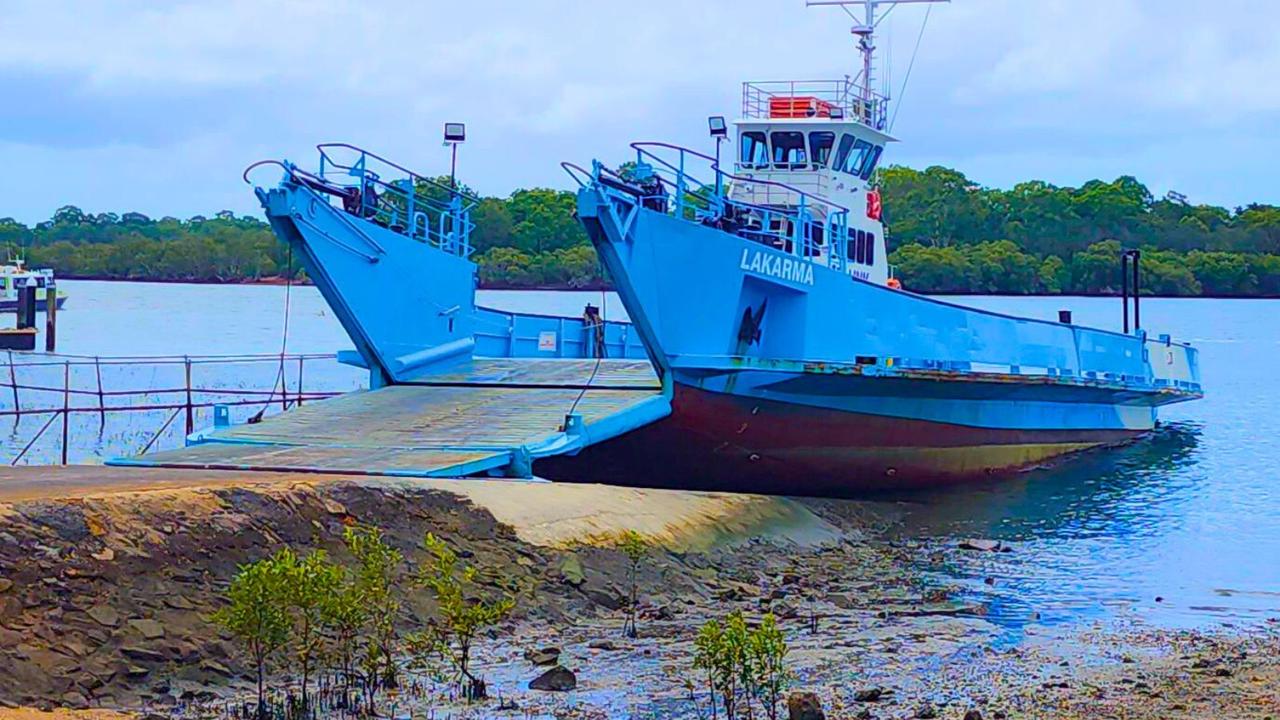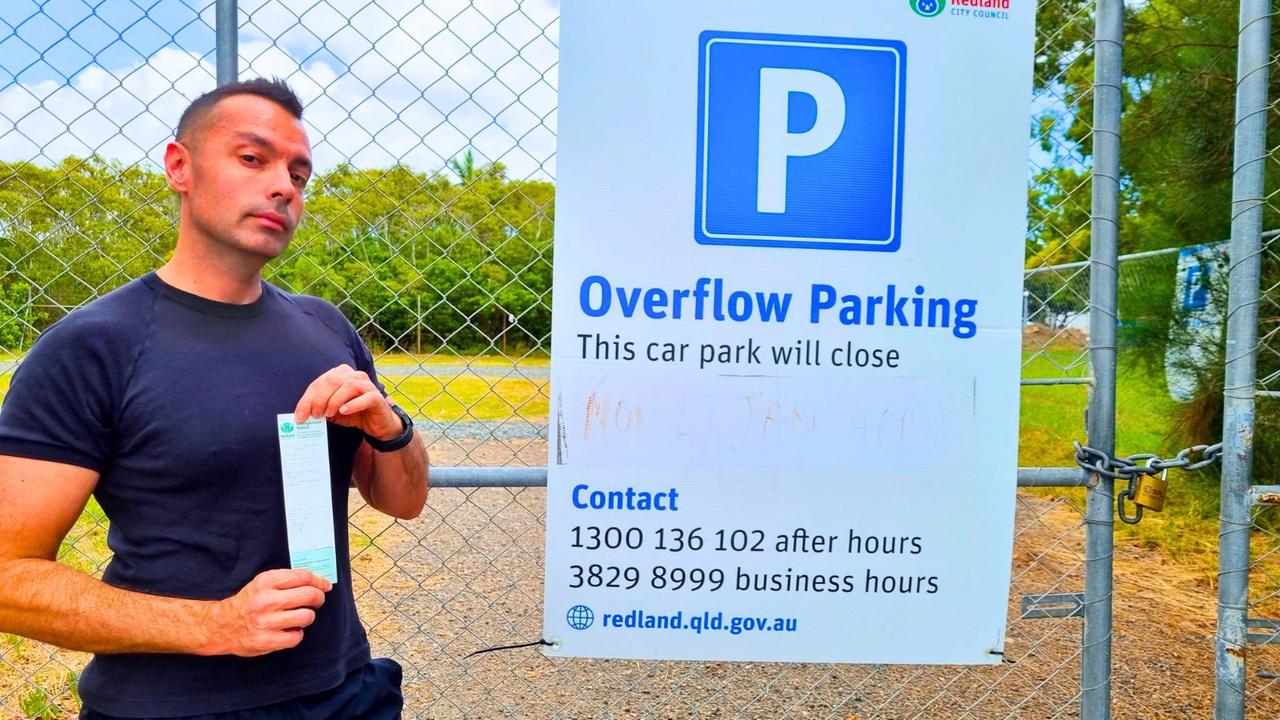60,000 call for end to calf roping in Queensland rodeos
As the State Government prepares to review the standards of rodeos in Queensland, more than 60,000 people and the RSPCA have joined a campaign to end the “abhorrent” practice of calf roping immediately. WARNING: Graphic
South West
Don't miss out on the headlines from South West. Followed categories will be added to My News.
A petition with 60,000 signatures calling for an end to calf roping at rodeos will be presented to the State Government today with support from RSPCA Queensland.
Annerley-based Animal Liberation Queensland (ALQ) Rodeo Campaign co-ordinator Gayle D’Arcy said the petition presentation coincided with the government’s review of the standards and guidelines for Queensland rodeos.
Full Digital Access: $5 per month for the first 3 months (conditions apply)
Ms D’Arcy said most Queenslanders do not support calf roping and “over 60,000 people have now signed our petition wanting the State Government to act”.
“Most people don’t like seeing what is obvious torment inflicted upon vulnerable young animals and plenty of rodeo fans and rodeo participants are not fans of calf roping either,” she said.
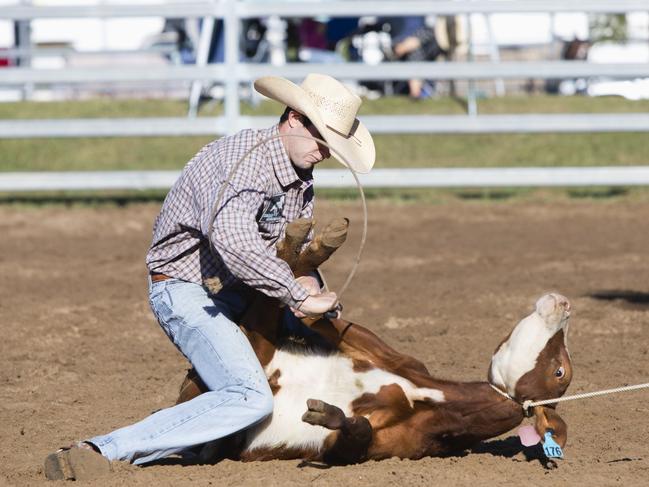
RSPCA Queensland spokesman Michael Beatty said the RSPCA definitely supported a ban on calf roping “and so do most bull and bronc riders plus spectators”.
“At the very least we’d like the government to put the matter up for public consultation,” Mr Beatty said.
“We would also like it to be mandatory that there is a qualified vet on site and that only experienced stock contractors supply animals for rodeos.”
“The stock must be experienced not dragged out of the bush for use at an event that scares the hell out of them.”
Ms D’Arcy said the rodeo event, also known as Rope and Tie, was already prohibited in Victoria and South Australia and all rodeos were banned in the ACT.
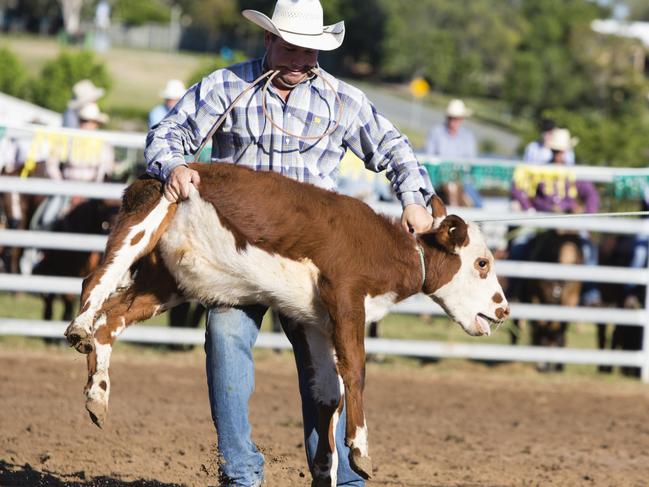
“Minister Mark Furner knows there is a high level of public concern around calf roping. His department has stated it is a key consideration in the development of Rodeo Standards & Guidelines,” she said.
“We’d like Mr Furner to just do the right thing and prohibit the event immediately, but failing that, concerned individuals and groups deserve the opportunity to have their say on behalf of these exploited animals.
“The idea that it’s acceptable for young animals to deliberately be made afraid time and time again just for sport is quite abhorrent.
“Society expects young animals to be treated with compassion and calf roping clearly fails the test. Quite simply it is past its use-by date.”
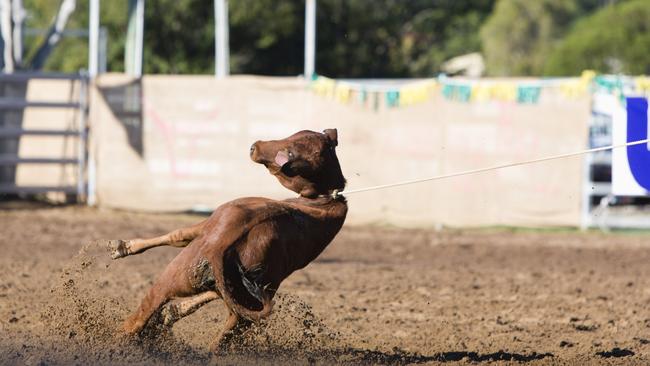
She said it was difficult to know the true number of injuries as they were not always immediately evident but “autopsied American calves’ injuries showed haemorrhage, torn ligaments and cartilage, torn and bruised muscles, damaged trachea and damaged thyroid glands in the neck as well”.
Minister for Agriculture Mark Furner said a dedicated working group was finalising the new Queensland Animal Welfare Standards and Guidelines for animals at rodeos.
“The working group has an independent chair and is made up of representatives from the rodeo industry, animal welfare groups, the RSPCA, the Australian Veterinary Association and the Department of Agriculture and Fisheries (DAF),” Mr Furner said.
“A range of issues is being considered during the development of the draft standards, including calf roping and whether a veterinary presence at rodeos should be mandatory.”
Mr Furner said the working group would liaise with the Queensland Office of Best Practice Regulation (OBPR) to determine what level of further consultation may be required
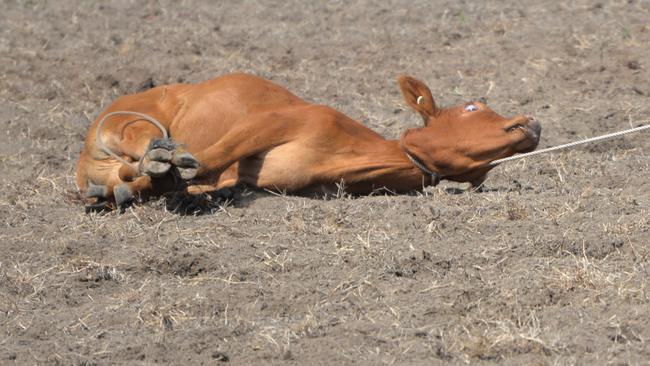
ALQ also called for the mandatory introduction of a vet onsite at rodeo events not just that they be available via phone consultation, as required under the current legislation.
“If they end up deciding that calf roping can continue the Premier’s recent statement that her government won’t tolerate animal cruelty will just look meaningless,” Ms D’Arcy said.
“Calf ropers regularly make mistakes and we’ve seen calves roped across their eyes, around their nose; tripped up around their front legs, and caught by the back legs.
“We’ve even seen a calf roped around his tail. Mis-ropings will always happen because of human error and this creates an increased risk of injuries, which cannot be mitigated.
She said calves exhibited fear “each and every time they are forced to participate”.
The News contacted Rodeo Services Australia and the National Rodeo Council for comment but they did not respond by the deadline.

